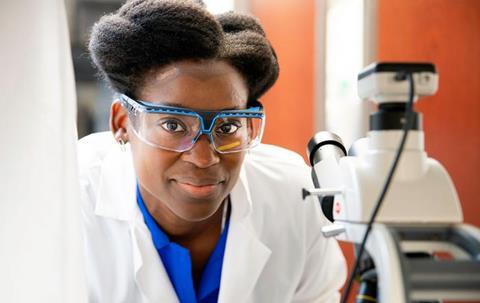Armed with a $2.7 million grant from the National Institutes of Health, University of Florida biomedical professor Ivana Parker, Ph.D., is targeting one of the most common – and dangerous – infections in women.

The prestigious NIH Director’s Pioneer Award for High Risk, High Reward provides a five-year grant that will allow Parker to study Bacterial Vaginosis (BV) and, ultimately, offer more effective personalized treatments.
READ MORE: Women need better treatments for bacterial vaginosis: call
READ MORE: Human cervix modeled in microfluidic organ chip helps target bacterial vaginosis
“This award recognizes Ivana’s innovative approach in delineating the unique relationship between HIV and resident immune cells by combining AI and benchtop research using diverse clinical samples,” said Cherie Stabler, chair of UF’s J. Crayton Pruitt Family Department of Biomedical Engineering.
Effect on immune cells
Gathering samples from 400 women from all walks of life and corners of the globe, Parker and her team will analyze the effects and interactions of BV on immune cells and vaginal tissue.
“Bacterial Vaginosis is a driver of the HIV epidemic, increasing HIV risk up to 60%. BV is the most common vaginal condition among women of reproductive age,” noted Parker, an assistant professor with UF’s J. Crayton Pruitt Family Department of Biomedical Engineering with the Herbert Wertheim College of Engineering.
Symptoms can cause extreme discomfort, including burning, vaginal malodor, and itching.
BV also can increase the risk of sexually transmitted diseases, pre-term birth and cervical cancer, Parker said. Global BV prevalence among women of reproductive age range is up to 29%, according to the World Health Organization. The percentage is higher among African American women.
Bacteria and HIV
“We are looking to understand how bacteria that live in the vagina contribute to HIV risk and the interaction of bacteria and immune cells,” said Parker, who worked at the Center for Disease Control and Prevention during her postdoctoral studies.
These immune cells, called macrophages, can live in tissue for a long time, and few researchers have examined the effects of BV in the tissue, Parker contends. As of now, BV is usually treated with antibiotics.
“We’re also interested in understanding how the bacterial communities are different based on where people are from, race and ethnicity, or how people live . The treatments for BV right now aren’t great,” Parker said.
Swabs from across the globe
Parker and her graduate students are collecting vaginal swabs from local and global participants – young and old from many walks of life. Some samples will come from partners in Ghana and South Africa.
They want to understand the nuances of diverse groups, particularly black and Hispanic women who are more susceptible to BV and recurrent BV.
“We want to be able to use this to predict and create computational models, and for that, you need quite a bit of data,” Parker said.
“In this grant, success will be understanding the role macrophages may play in HIV risk. Are there certain bacteria that increase the macrophage’s ability to be a reservoir for HIV? Success would be unveiling an important mechanism that has not been studied that allows us to understand how immune cells and bacteria interact to increase HIV risk.”
Predicting inflammatory markers
Parker will take all the inputs and use UF’s supercomputer, HiPerGator , to predict inflammatory markers based on a person’s bacterial make-up.
“We are also trying to understand what is healthy, as well,” Parker said. “That is another question. You have all these different groups of bacteria, and you have women who may have been diagnosed with BV, but they have no symptoms. They seem like they’re fine.”
Established in 2004, the NIH Director’s Pioneer Award supports highly innovative researchers who propose bold and unusual research projects with broad scientific impacts, according to the NIH.
“Ivana’s NIH Pioneer Award highlights the transformative potential of her work, and we are incredibly proud to support her as she advances both scientific knowledge and health outcomes for women,” Stabler said. “Ivana’s contributions inspire our community and underscore our commitment to impactful research at UF BME.”
Emerging leaders
In October, Parker also won the inaugural A. Oveta Fuller Award, which honors emerging leaders working in microbiology and immunology, infectious disease, or health disparities. A. Oveta Fuller, Ph.D., who died in 2022, was a virologist and the first Black woman hired in the Department of Microbiology and Immunology at the University of Michigan.
“We were impressed with the clear parallels between Dr. Parker’s work and Dr. Fuller’s legacy. We are delighted that Dr. Parker shares Dr. Fuller’s passion for research that impacts marginalized communities and public health,” noted Beth Moore, Ph.D., the Nancy Williams Walls Professor and Chair of the Department of Microbiology and Immunology at the University of Michigan.
In 2018–2019, Parker was a Fulbright Scholar at the University of Cape Town in South Africa, where she worked to alleviate mother-to-child transmission of HIV. Parker’s other accolades include the 2023 UF 40 under 40 Award and a UF International Center Global Fellowship in 2021.







No comments yet